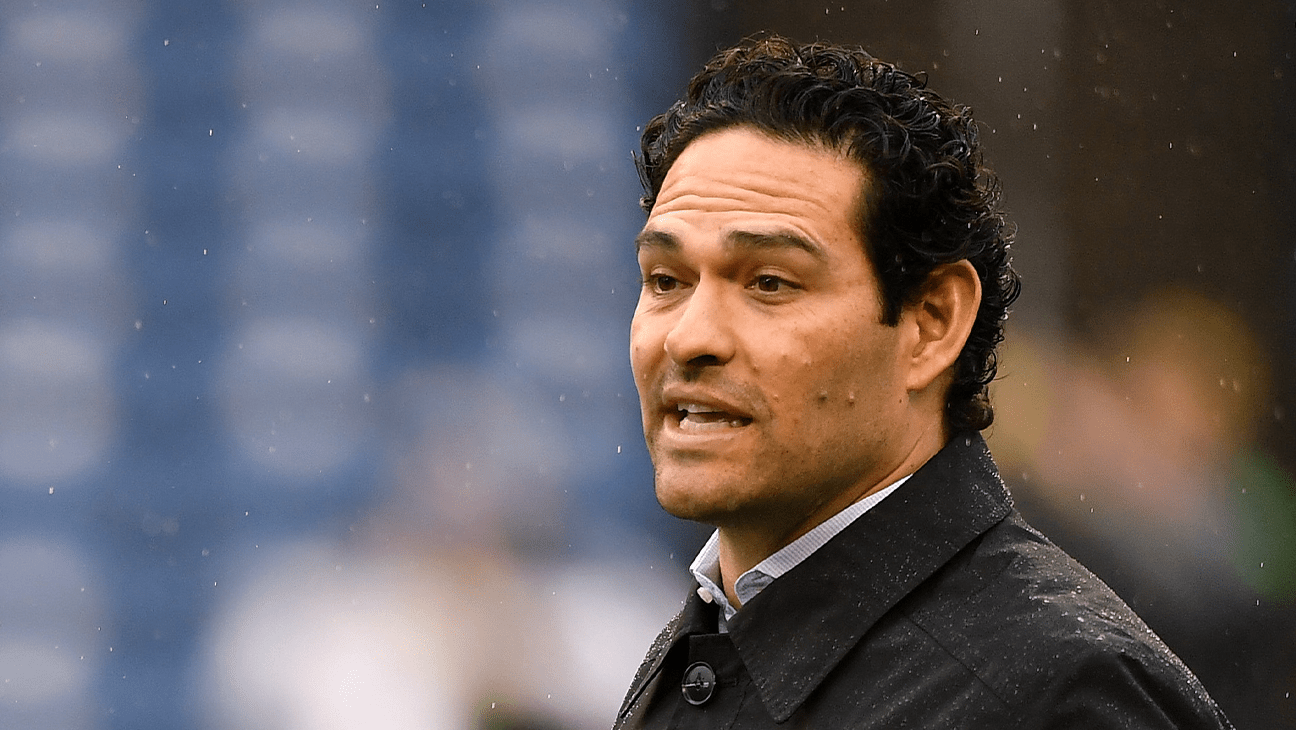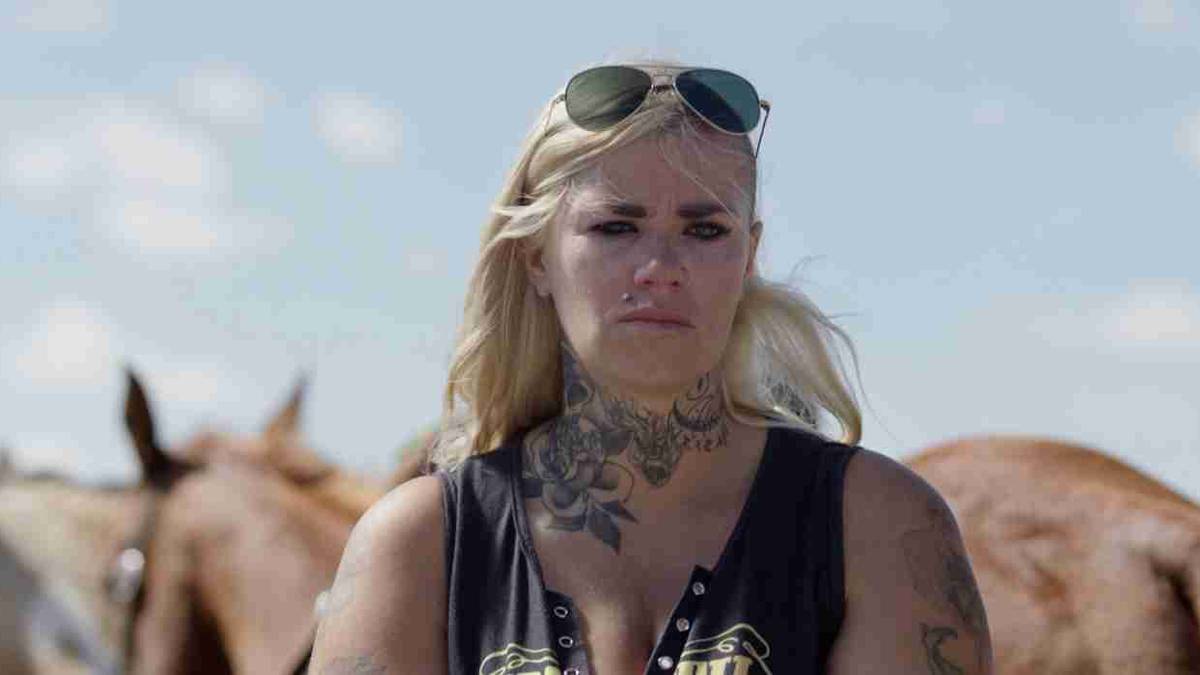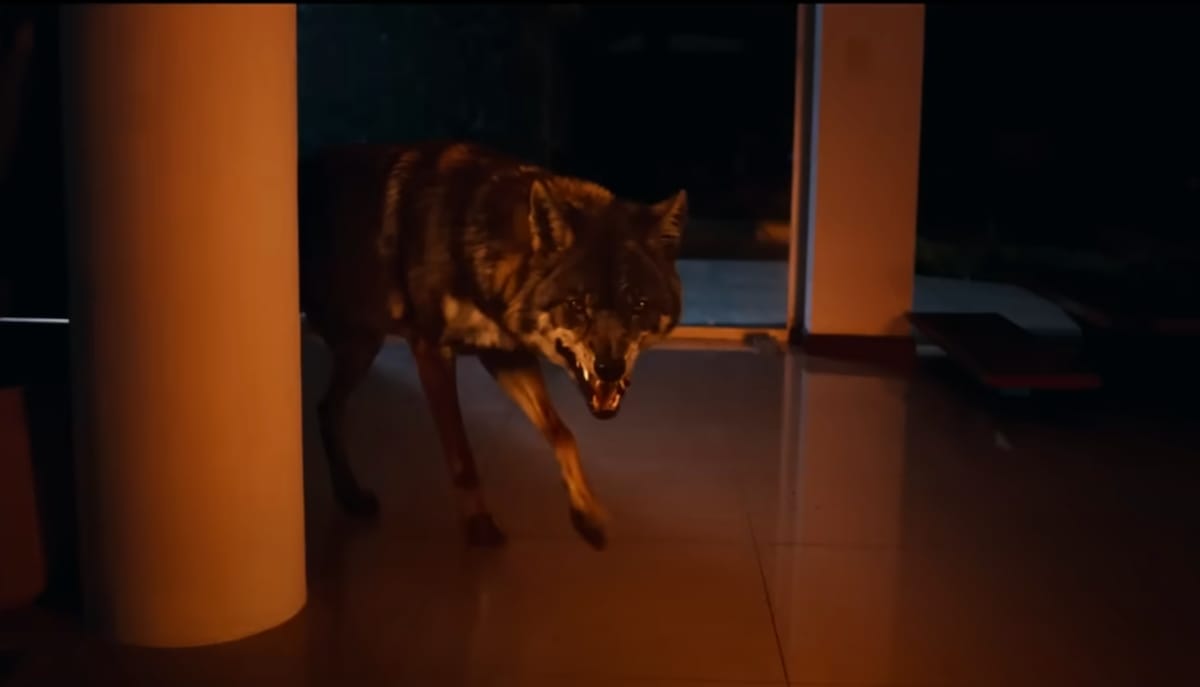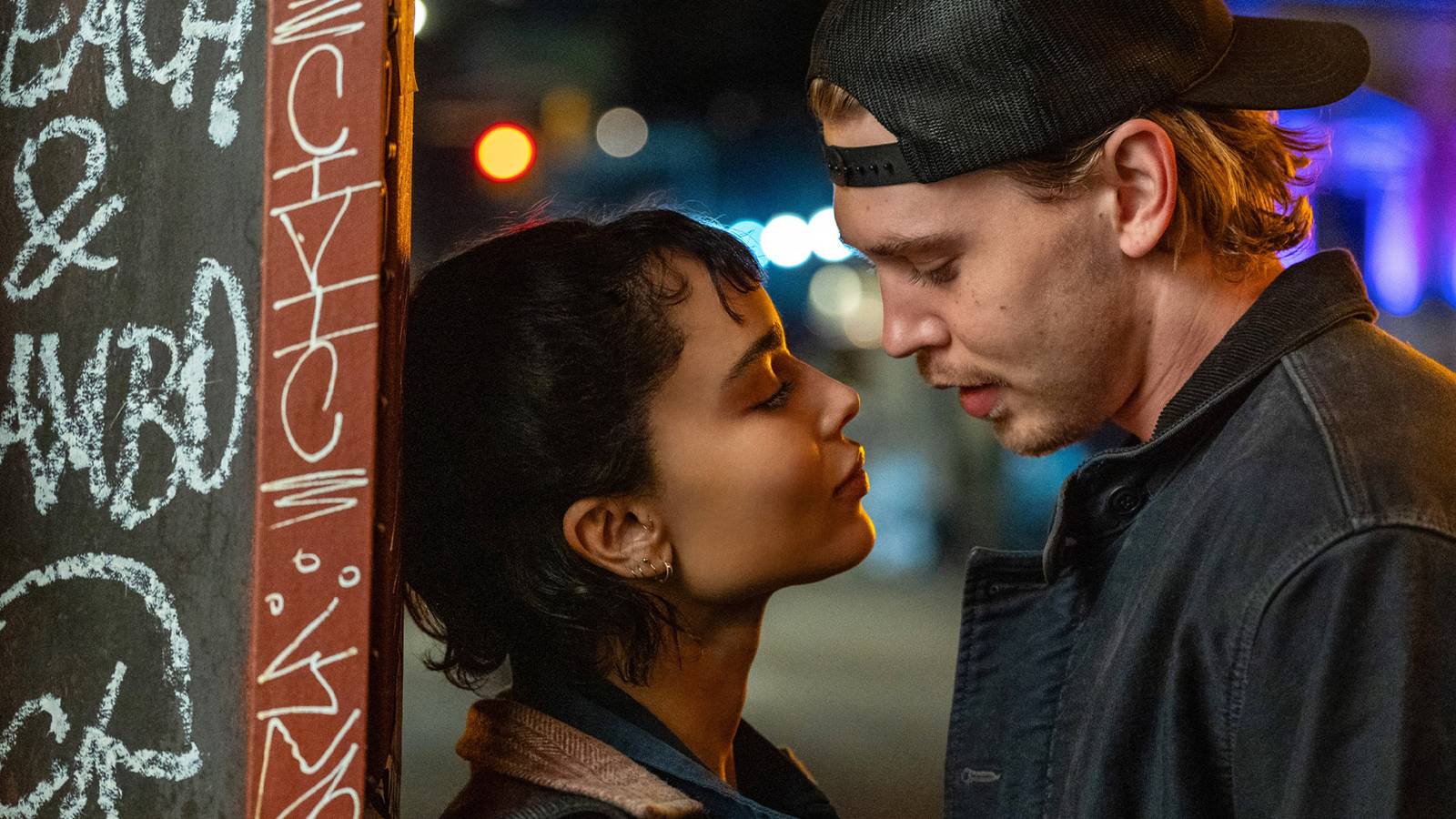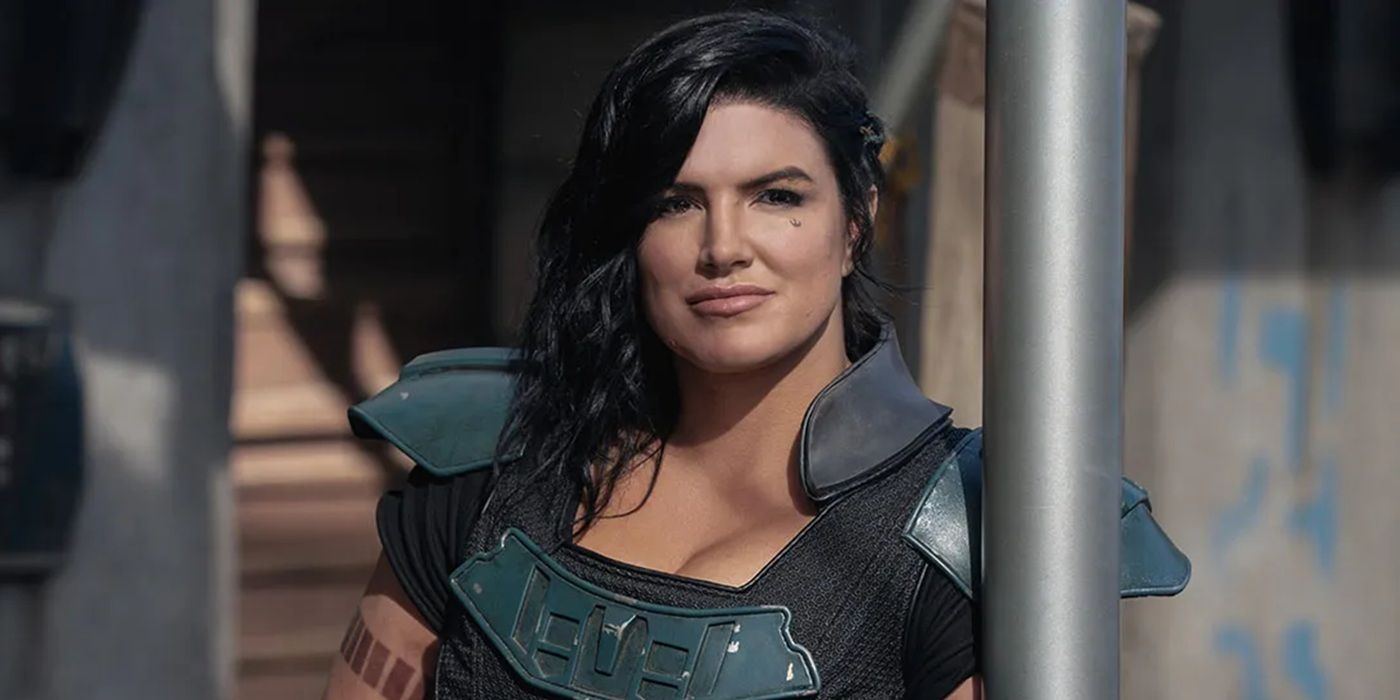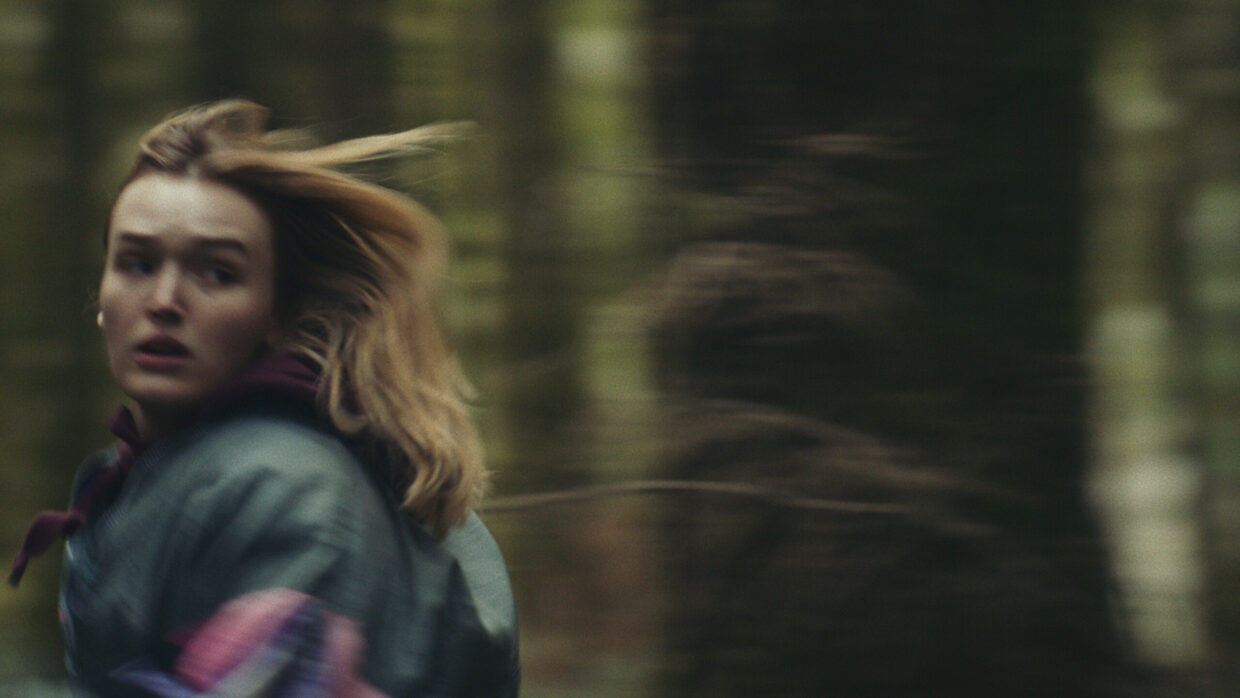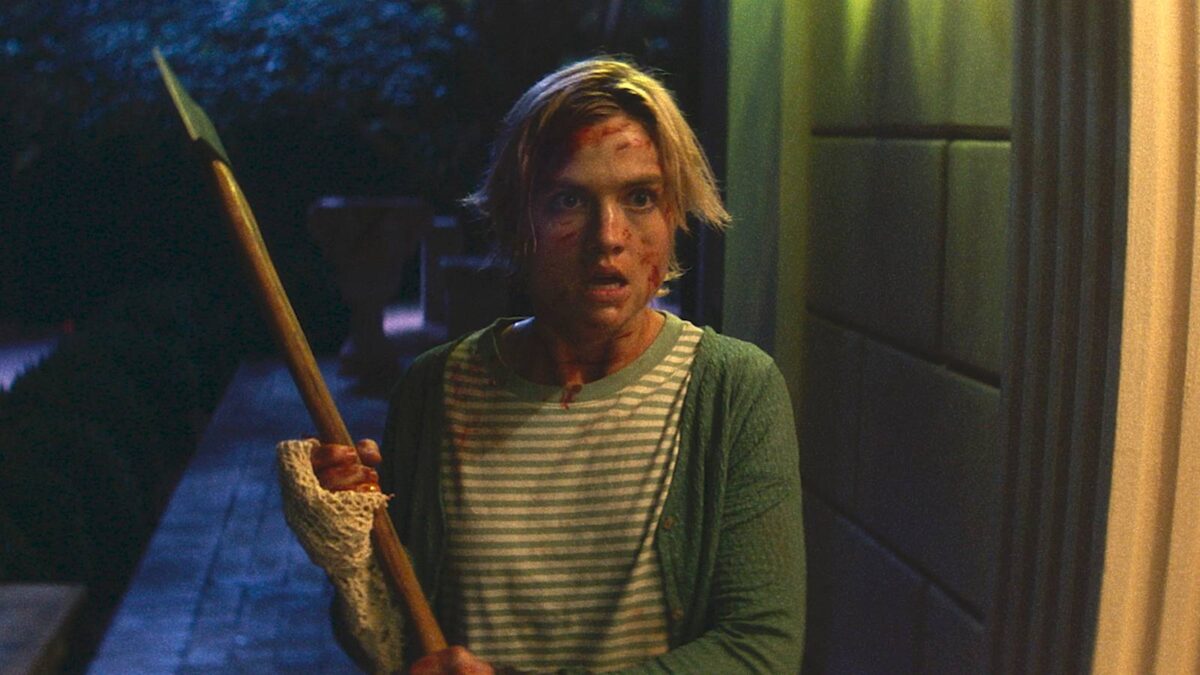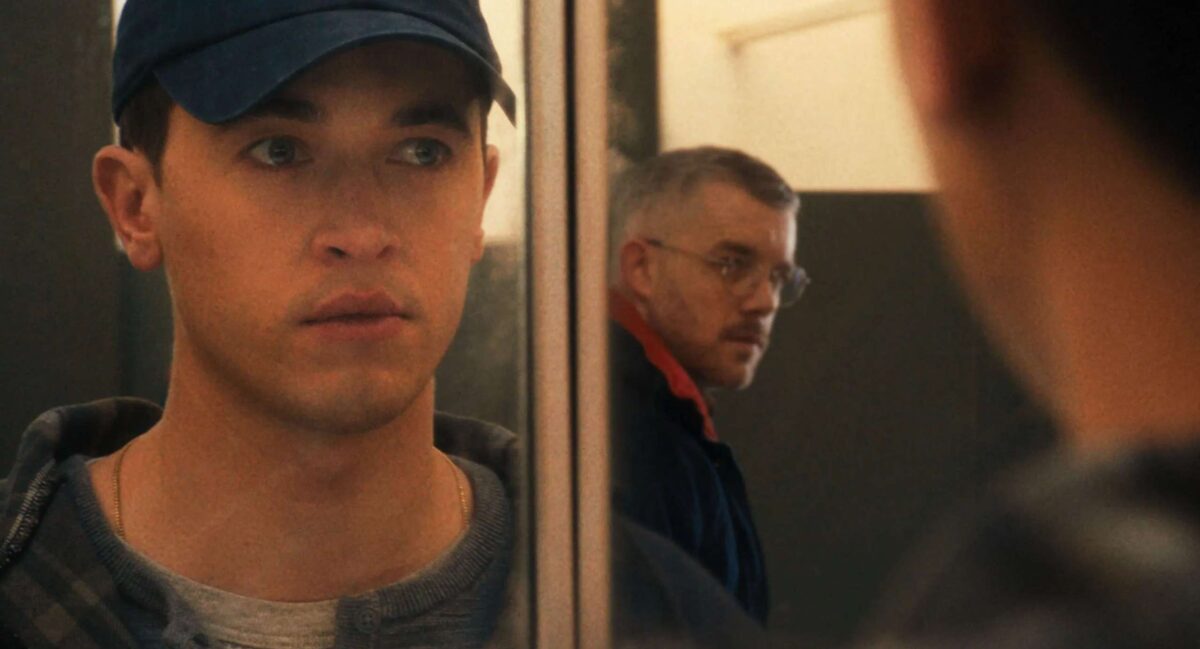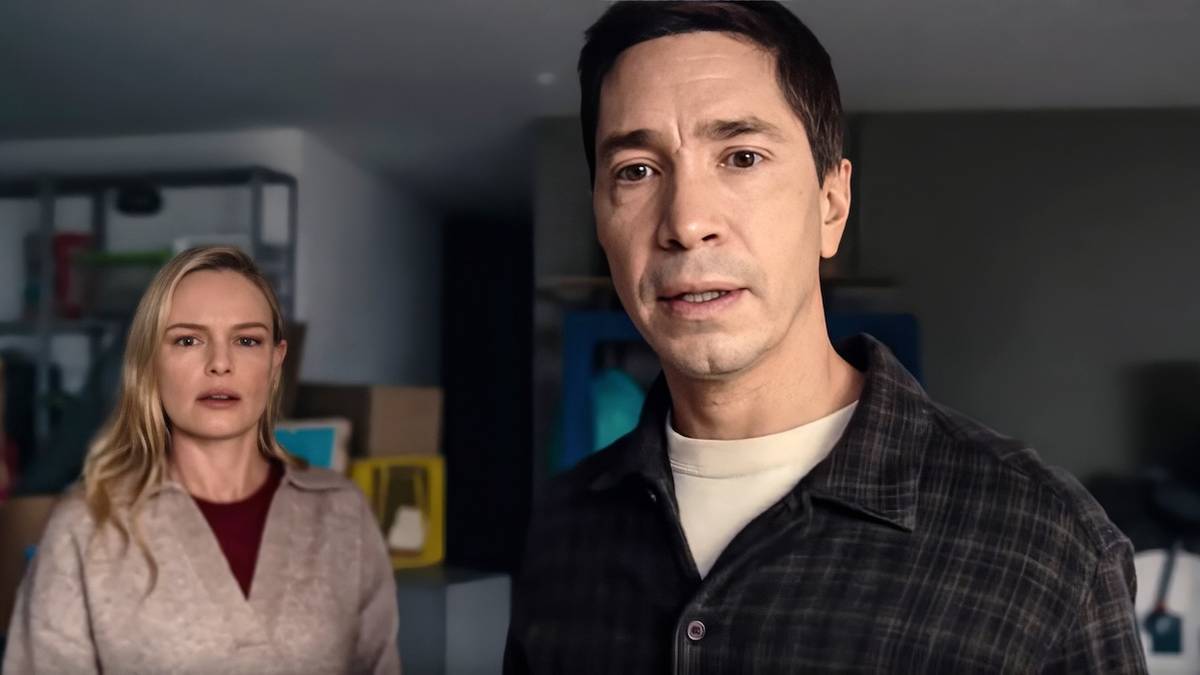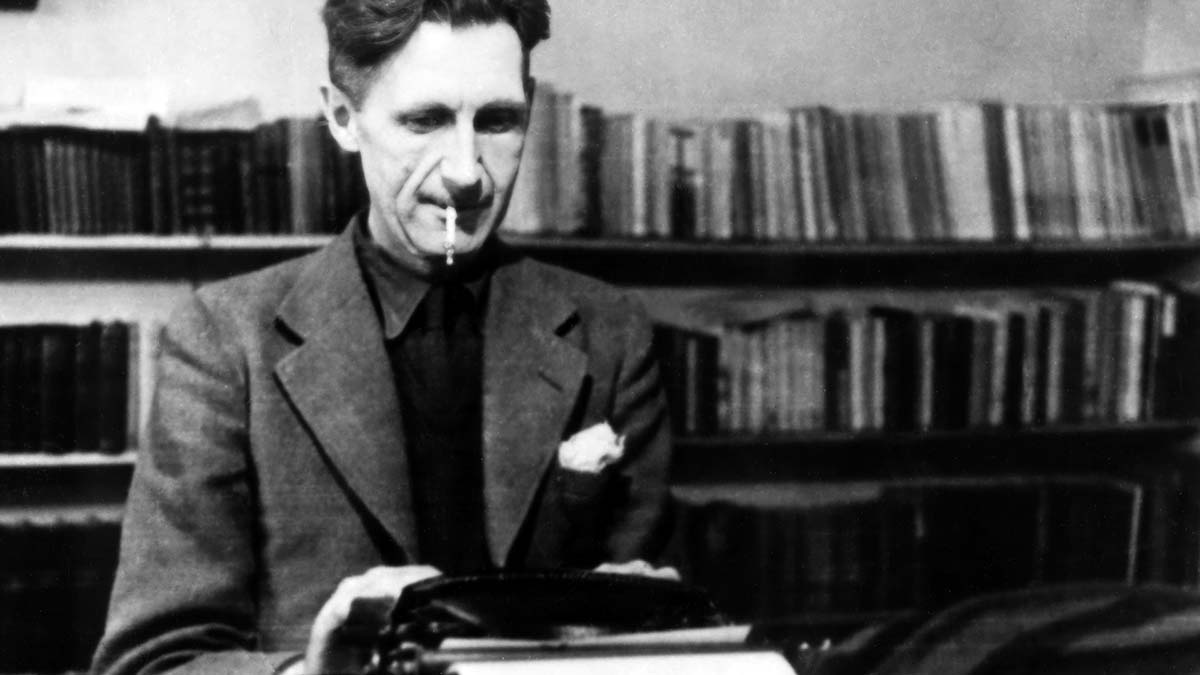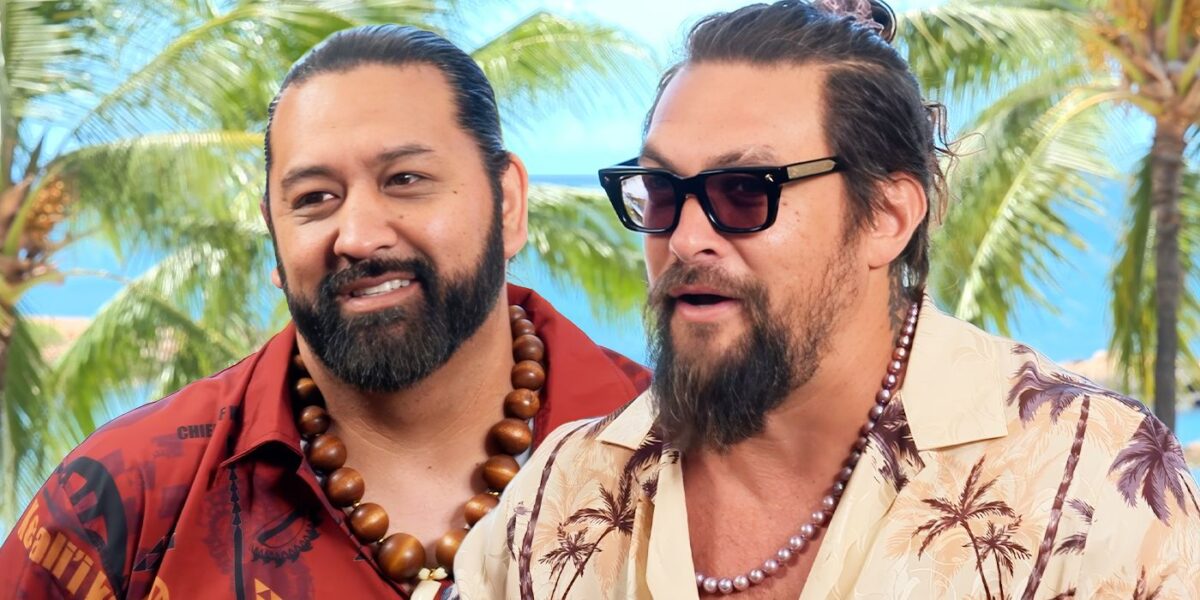
“I’m Actually Better at Doing That Than Acting” [Exclusive]
Aug 1, 2025
Summary
Jason Momoa and Thomas Pa’a Sibbett chat with Steve Weintraub ahead of Chief of War.
Momoa’s passion for directing shines in the finale, showcasing his ability to execute complex action sequences.
Including authentic Hawaiian language was a key focus for Momoa and Sibbett to ensure the cultural reality of the series is accurately portrayed.
Ever since his debut on Baywatch: Hawaii back in 1999, the brilliant Jason Momoa’s rise to the top has been well-deserved. From portraying Khal Drogo in the first two seasons of Game of Thrones to joining the DC Universe, Momoa has proven to be a sure-fire way to put eyes on a project. Thankfully, his next is coming straight from the heart, as Momoa teams up with Apple TV+ to bring to life Chief of War. Created by Momoa and Thomas Paʻa Sibbett, the series is set against the beautiful backdrop of 17th-century Hawai’i, and follows Momoa’s warrior, Ka‘iana, as he attempts to bring his local community together against impending Western colonialization. Putting in effort to bring authenticity through story and language to a global audience, Chief of War has the potential to bring much-needed mainstream attention to a culture underrepresented on screen. The historical drama series also stars Temuera Morrison (The Mandalorian), Luciane Buchanan (The Night Agent), Cliff Curtis (Avatar: The Way of Water), and Mainei Kinimaka (See). Ahead of the show’s release, Collider’s Steve Weintraub sat with co-creators Momoa and Sibbett to discuss all things Chief of War, including Momoa’s work as a director, the pitching process involved in bringing a show of this nature to life, the importance of language, and much more.
‘Chief of War’ Hopes to Paint a Historical Picture of a Hawai’i Many See Simply as a Vacation Destination
“Hawai’i is a stop-off place for a lot of people.”
Image via: Apple TV+
COLLIDER: I watched the whole series, and I really want to say congrats. You did a great job. There’s so much rich, great history in Hawai’i. Why has it taken so long for a series like this to be made showcasing its history? JASON MOMOA: It’s a great question. THOMAS PA’A SIBBETT: I think it really comes down to there’s so much beautiful world history, and of course, not all of it’s going to be seen. You kind of have to get it from the inside out. And, you know, nobody was asking for it. Nobody’s really been looking for it. Hawai’i is a stop-off place for a lot of people; it’s a feel-good place, and they love it. History proves that we really don’t know much about it. So, for us to have an opportunity to share some of these stories that we’ve been told growing up, to showcase the look of Hawai’i and things that we have come to love, it was just a fertile location for good storytelling, and we were fortunate enough to do it. MOMOA: I’m excited for Americans, too, for this. I mean, we’re the 50th state, and I think a lot of people don’t understand what happened here, so it’s a big deep dive into that. You’ve got people from all over the world coming to get married, people from Japan and Germany, and they love and they celebrate and come, and they take that special feeling home. Now, they get to be in the comfort of their home, and they get to see what really happened here and what we’re made of. So, I think it will resonate with a lot of people. It’s a human story. We’re not reinventing the wheel, but the texture and the fabric of Hawai’i’s backdrop, it’s something new that you haven’t seen. But still, when we were coming up with this, there were so many stories we wanted to tell, like, how do we fit in to be able to tell this? Like you say, you shoot off kilter of what Kamehameha’s story is, because we’re not telling it through his point of view, we’re telling it through another man’s point of view, so we can get a little bit more because there are so many things going on here.
Image via Apple TV
I really want to commend Apple for making this series, and I’m a huge fan of Apple TV, but I’m curious, what was it like for them in that initial meeting? You’re pitching to them, and did they ask you if you have a two-year plan? A three-year plan? Did they trust you because of your other work? MOMOA: I think that’s the reason why we’re able to make it. I needed to wait until my career was in that place where people would want to watch it, to make it this size, and also have a great track record with them. Obviously, starting with them in 2018, doing See, like you said. We have really good trust, and so I pitched this series to Zack while we were doing the first Dune. We were just in the hotel room, he’s with me, and I’m like, “Let’s go for it.” And it was something we’ve had for a long time, but we had to have the support, and they needed to be in the right timing. Then we went and pitched it, and we wrote it within the year, and then basically went into production. So, I think it’s just an amalgamation of all the right things stacking up at the right time because we wanted to have that control. I think if we would have done this earlier, it’s one of the things you would have to pass off to another producer who then would have control and change things. If it’s going to have our name on it, we really wanted to maintain the integrity of our lineage and our heritage. It took a while. SIBBETT: We were supported in that. I remember that initial conversation. Within 24 hours, we had a pitch deck and all that stuff. Brian Mendoza, our partner, put the visuals together. He had the verbal pitch. I wrote everything out within 24 hours. We put that in within three. Francis Lawrence was stepping on board, and Peter Chernin, and to see everything just start to develop so quickly proved that these stories are universal, and they work. But to have that cultural context just really pushes that nuance over. Yeah, man, we were very fortunate.
Related
Jason Momoa and Dave Bautista Face Off in This Brutal Post-Apocalyptic Apple TV+ Sci-Fi Series
All three seasons of the show is available to stream on Apple TV+.
Jason Momoa Prefers Directing to Acting
“I’m actually better at doing that than acting.”
Jason, you co-wrote every episode, but you directed the finale, and the finale is immense. There’s so much going on, and there’s so much action. At what point of the shoot in the finale were you like, “Did I really want to direct this episode?” I’m joking around, but you’re doing so much in it. MOMOA: No, I love it. I’m actually better at doing that than acting. I love it so much. I mean, that’s where I kind of belong is behind… I’ve been doing it for about 15 years now. We did Road to Paloma in 2014, and it’s just been constantly doing smaller things and trying to get things going and doing movies and TV shows, and commercials. I explained to our whole crew how I wanted to shoot it. You have to understand, that whole fight scene was shot in reverse. We basically show up at 3:00 a.m., and we shoot until about 3:00 in the afternoon. And we shot French hours, in reverse, so that, when I’m standing off against Keōua, is our first shot. So we have a little bit of that violet and having the lava come up, that’s morning, but I wanted it to seem like we were fighting in the day, and it’s going into night. So to reverse that over an eight-day period, and you’re not able to pull off that fight in eight days, but if you shoot four units, five units, then you can pull it off. So, with the help of a really, really amazing crew and because I have a very strong team, and I’ve worked with my stunt team for a decade now, we were able to shoot and use even my stunt double where I was shooting on something else, and be able to use him. We choreographed eight days to pull off that magic thing, but in the light. So it’s not just, “Oh, we shot in the daytime” or “We shot at night.” No, we shot it in sequential order, but in reverse. I really don’t think people understand how big this fight is in the finale. I don’t want to spoil anything.
Related
Jason Momoa’s 63% Rotten Tomatoes Dystopian Drama Gets Epic Update 3 Years After Ending
The series also stars Dave Bautista.
I’m fascinated by the editing process because it’s where it all comes together. How did the series possibly change in the editing room in ways you didn’t expect going in? SIBBETT: The truth is, it was huge. It was a hard thing to do. Because we’re not only introducing characters nobody’s ever known before, we’re trying to keep track of all the cultural nuances. And, I would say, as the process was going on and as it comes to life or whatever just excited us, you know what I mean? I don’t know if I found moments that I was like, “I wasn’t expecting that.” I was like, “Look how beautiful this is.” MOMOA: I’m already editing in my head. The way that I see and the way that I take pictures in my head. I edit. My friends will freak out cause I know all the takes, and I’m like, “No, go back to the third take. I know he does this little thing with his lip.” And they’ll be like, “How did you see that?” I’m like, “’Cause I’m just blueprinting everything as I go.” It’s weird, but I just take little photographs in my head where I’m just cutting it up as we go.
Including Authentic Language Is Key to ‘Chief of War’
“If you remove language, you remove the reality.”
I’ll ask both of you. What is something that you each fought for to include in the series that you are so happy that you did? SIBBETT/MOMOA: Language. [Laughs] SIBBETT: It was such a big thing for us because we do live in a time where Hawaiian, there’s no demographic as to whether or not that language is marketable. There’s no understanding, there’s no precedent if something like this can draw in crowds. So, it was a conversation. Can we get away with not using Hawaiian? And the truth is, we knew that if you remove language, you remove the reality. Make no mistake. This is based on actual history. These characters all have their own stories. They have their own lineages. We know who they are. So it feels like a world-building show, but it is absolutely based on something real. So, to take language away, you take away the reality. MOMOA: We also talked about the fact of literacy for Native Hawaiians. SIBBETT: Hawaiians developed millions of pages of documents. They started their own printing presses. We have so much information, and we just knew, our chiefs knew, turn the people to education. Turn them to that. So, language became a big thing for us. We had 97, almost 98%, literacy rate after the king said, “Learn how to read and write.” They would learn how to read and write multiple languages. So, for us, the ability to share language is really a way to share who we are. There’s no way we could say we’re presenting something authentic without it.
Image via Apple TV
MOMOA: It’s nice to be able to have the blend, because obviously my character, if you’re a chief of war, you’re going to understand the culture, you’re gonna learn everything about it. You’re gonna learn how to speak like them so you can understand what they’re doing. So I think there’s a certain amount of characters that obviously switch over to be able to do the English, and then, obviously, there are ones that would never, ever do that. That’s what it comes down to in the fight, which is something that I went to [Sibbett] about. I was very scared because once you play a character for so long, you’re like, “This is kind of what I would do,” and I’m thinking like Kaʻiana. Because you generally have to have the kahuna. They did the blessings, and the volcanoes went off. Then, we get into this battle. One guy comes up, and these two generals go off on each other and try to humiliate each other in front of their armies, and then they get into the fight. But I can’t think of anything more humiliating than showing up to your enemies’ backyard, speaking the language that disgusts them. So, I wanted to look to Kamehameha and say, “Mai kaʻu mōʻī,” from my king, and then he lets me do it. Then the audience gets to hear me say the things that I get to just tell him, and he doesn’t understand what I’m saying, which makes him freak out. I just want to tempt him to run at me because then I want to shoot him. So, I want them to get closer so we can cut all that off and eliminate the front line. So, as a chief of war, I came up this as Momoa because I was playing the character. I’m like, “How can I lure them in without calling them, like, dirty reef fish,” which is like probably a bad word back in the day. SIBBETT: It was so bad. [Laughs] MOMOA: “You called me a reef fish!?” [Laughs] So, that was something that came out of that, where you’re being able to say that in English, me just pissing off Cliff [Curtis] as Keōua. It would be something that I would do. Chief of War premieres on August 1 on Apple TV+.
Publisher: Source link
Erotic Horror Is Long On Innuendo, Short On Climax As It Fails To Deliver On A Promising Premise
Picture this: you splurge on a stunning estate on AirBnB for a romantic weekend with your long-time partner, only for another couple to show up having done the same, on a different app. With the hosts not responding to messages…
Oct 8, 2025
Desire, Duty, and Deception Collide
Carmen Emmi’s Plainclothes is an evocative, bruising romantic thriller that takes place in the shadowy underbelly of 1990s New York, where personal identity collides with institutional control. More than just a story about police work, the film is a taut…
Oct 8, 2025
Real-Life Couple Justin Long and Kate Bosworth Have Tons of Fun in a Creature Feature That Plays It Too Safe
In 2022, Justin Long and Kate Bosworth teamed up for the horror comedy House of Darkness. A year later, the actors got married and are now parents, so it's fun to see them working together again for another outing in…
Oct 6, 2025
Raoul Peck’s Everything Bagel Documentary Puts Too Much In the Author’s Mouth [TIFF]
Everyone has their own George Orwell and tends to think everyone else gets him wrong. As such, making a sprawling quasi-biographical documentary like “Orwell: 2+2=5” is a brave effort bound to exasperate people across the political spectrum. Even so, Raoul…
Oct 6, 2025
